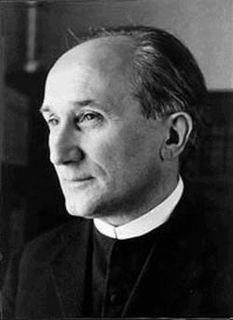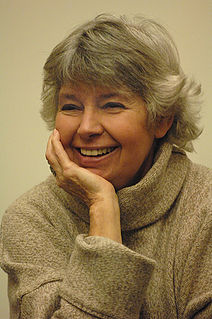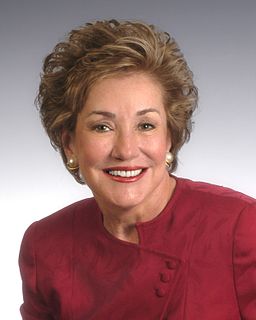A Quote by George Eliot
Of a truth, Knowledge is power, but it is a power reined by scruple, having a conscience of what must be and what may be. . . .
Quote Topics
Related Quotes
Of a truth, Knowledge is power, but it is a power reined by scruple, having a conscience of what must be and what may be; whereas Ignorance is a blind giant who, let him but wax unbound, would make it a sport to seize the pillars that hold up the long-wrought fabric of human good, and turn all the places of joy as dark as a buried Babylon.
We should not be content to say that power has a need for such-and-such a discovery, such-and-such a form of knowledge, but we should add that the exercise of power itself creates and causes to emerge new objects of knowledge and accumulates new bodies of information. ... The exercise of power perpetually creates knowledge and, conversely, knowledge constantly induces effects of power. ... It is not possible for power to be exercised without knowledge, it is impossible for knowledge not to engender power.
Truth is power, but only when one has patience and requires of it no immediate effect. And one must have no specific aims. Somehow, lack of an agenda is the greatest power. Sometimes it is better not to think in terms of plans; here months may mean nothing, and also years. Truth must be sought for its own sake, its holy, divine greatness.
At the heart of capitalism is the unification of knowledge and power. As Friedrich Hayek, the leader of the Austrian school of economics, put it, "To assume all the knowledge to be given to a single mind... is to disregard everything that is important and significant in the real world." Because knowledge is dispersed, power must be as well.
[On power:] Some people really have almost a disdain for that word. They feel it is alien to conscience. Power for power's sake, no. But the positive use of power for positive purposes is very important. You have to understand that. You've got to have a seat at the policy table if you want to make a difference.
We Indians do not teach that there is only one god. We know that everything has power, including the most inanimate, inconsequential things. Stones have power. A blade of grass has power. Trees and clouds and all our relatives in the insect and animal world have power. We believe we must respect that power by acknowledging it's presence. By honoring the power of the spirits in that way, it becomes our power as well. It protects us.
... we are obliged to produce the truth by the power that demands truth and needs it in order to function: we are constrained, we are condemned to admit the truth or to discover it. Power constantly asks questions and questions us; it constantly investigates and records; it institutionalizes the search for the truth, professionalizes it, and rewards it. ... In a different sense, we are also subject to the truth in the sense that truth lays down the law: it is the discourse of truth that decides, at least in part; it conveys and propels effects of power.



































